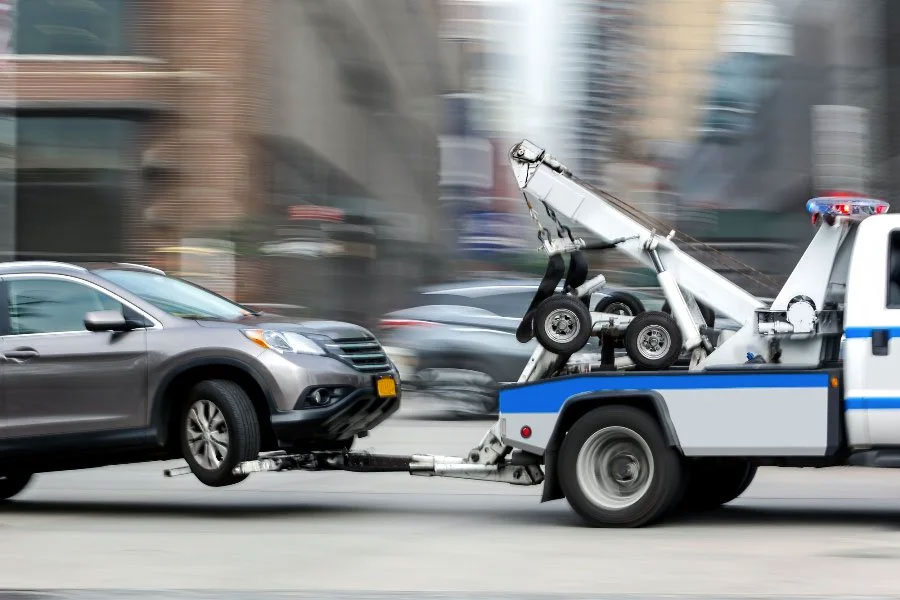Illegal auto repossession

What can you do if your vehicle was illegally repossessed?
Illegal or wrongful car repossession occurs when your car has been repossessed without any legal right or where you have not been properly notified of your rights following the repossession or voluntary surrender of your car.
Even if you missed payments on your car, you still have legal recourse against the finance company and repossession agent when your car is illegally repossessed.
Repossession agents may not breach the peace when repossessing your vehicle
If a repossession agent breaches the peace, the finance company may lose its right to lawfully repossess your vehicle temporarily. When a breach of the peace occurs, you may be entitled to the return of your vehicle and damages.
Repossession agents may not:
- They cannot use physical force or threaten to use physical force when taking possession of your vehicle.
- They cannot threaten you with arrest when taking possession of your vehicle.
- They cannot damage your vehicle or your property during the repossession
- They cannot come into your home without your permission
- They cannot enter your closed or locked garage to gain access to your vehicle
- They cannot break any lock or gate.
If a repossession agent engaged in any of the above actions they may have violated your rights under California’s consumer protection laws. It is critical that you carefully document your experience during the repossession by doing things such as taking photographs, making a video record, taking witness statements, obtaining copies of receipts for missing or damaged items, write down a timeline of events.
The finance company must provide you with written notices after repossession and sale
The borrower is responsible for making timely payments on the loan. If the borrower fails to do so, the finance company can recapture its collateral (the borrower’s vehicle) and repossess it. After the vehicle has been repossessed, the finance company must mail you notice apprising you of your specific legal rights, including the opportunity to reinstate and/or “redeem” your vehicle.
Your Rights and Opportunities to Remedy
Reinstatement requires that you pay the amounts due, any applicable delinquency charges, collection and repossession costs, and liens. Once you have satisfied these conditions, your car will be returned to so and you can then begin repaying the loan as if a default or repossession never happened.
Redemption occurs when you payoff the entire balance of your loan, along with any applicable delinquency, collection, and repossession costs. Depending on the terms of the purchase contract, you may be entitled to a credit for any unearned finance charges or cancelled insurance.Reinstatement generally costs considerably less than redemption and may be a feasible option based on your financial circumstances. While the right of redemption cannot be denied, there are limited circumstances where a creditor can deny you the right to reinstate, leaving redemption as your other option.
Notice of Seizure: Under California law, the repossession agent must provide the borrower with notice of seizure within 48 hours (in some cases longer) of taking the vehicle. The notice must tell you the name and contact information for both the finance company and the repossession agent. The notice also discloses the charges for storing the vehicle and how to obtain personal effects left inside the vehicle.
Notice of Intent to Sell Property: Shortly after repossession, the finance company must send a letter in the mail called a Notice of Intent to Sell Property to you stating:
- The outstanding loan balance at the time of repossession
- The amount required to be paid to recover the vehicle before sale (reinstatement or redemption)
- The location of the vehicle so that you can recover any personal belongings
- The deadline dates by which you have to act before the vehicle is sold at a public auction to a third party
This is a mandatory notice under California law that must be mailed to the borrower 15 days prior to the scheduled sale of the vehicle.
Notice of Deficiency: After your vehicle is sold at public action, the finance company will send the borrower a notice called a Notice of Deficiency which informs the borrower of the selling price of the vehicle at public action and the cost of repossession and storage fees. The notice will also calculate the deficiency balance after the net sales proceeds are applied to the remaining account loan balance. The deficiency balance is the amount you owe the finance company after the final sale of the vehicle. This is the amount the finance company is legally able to collect from you. If the vehicle sold for an amount more than the loan balance and there are surplus funds available, you should expect a check in the mail for the surplus amount.
Fighting an illegal repossession
If you experienced a breach of the peace or failed to receive any of the above required notices, you may be able to recover monetary damages from the finance company even if you defaulted on your loan and there was a lawful basis to repossess your vehicle.
Contactus today and tell us about your vehicle repossession experience
We at the Consumer Justice Law Center are here to listen to your story. We will help you to determine if the finance company and/or the repossession agent violated the law when they repossessed your vehicle. Contact us today and tell us your story.
